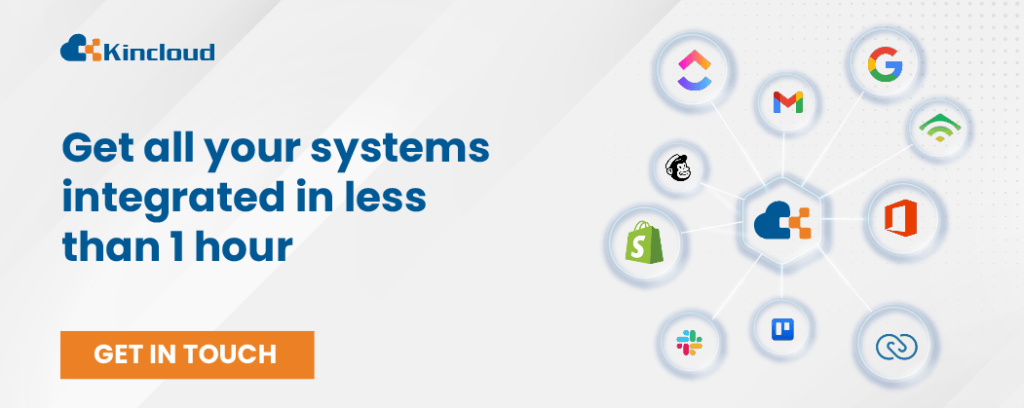For many companies, managing and integrating different applications is a daunting task. That’s where IPaaS comes in, by providing a platform that allows for the easy integration of different applications. In this blog post, we’ll explore the benefits of IPaaS for organizations and discuss some of the key practices for an IPaaS. Stay tuned!
►►► See our products: Magento POS, BigCommerce POS, Shopify POS, Phần mềm CRM, Woocommerce POS, Restaurant POS, NetSuite POS, Thailand POS, South Africa POS and Commercetools POS
What is iPaaS?
Integration platform as a service is a collection of automated solutions for integrating software applications distributed in various environments. iPaaS is frequently used by large enterprises that operate enterprise-level systems to integrate apps and data that are stored on-premises as well as in public and private clouds.

An iPaaS platform typically offers pre-built connections, business rules, maps, and transformations that streamline application development and coordinate integration flows. Some iPaaS providers provide specialized development kits to update outdated apps and add features like support for mobile devices, social platform integration, and business data management.
What are iPaaS benefits for organizations?
At its best, iPaaS combines the specific requirements of a company into a cloud-based toolkit to manage the increased data volume brought on by cloud environments, mobile device compatibility, accelerated application development cycles, and complicated B2B transactions. Real-time integration is frequently utilized in this context, with the aim of minimizing disruptions brought on by disparate data formats and application interaction incompatibilities.
By building a virtual platform that combines resources and apps to create a unified framework, iPaaS can help streamline an organization’s total technology infrastructure. The iPaaS platform effortlessly combines resources from different clouds as well as from cloud-based and traditional applications.

iPaaS best practices
Companies will get the greatest outcomes and add more value to their operations when they adopt iPaaS best practices, such as the following:
Pay attention on the stack
Consider all the applications that need to be integrated before implementing iPaaS. All of the integrations required to link all of the involved apps should ideally be offered by an iPaaS platform. If not, the company might require more integration tools and would then have to figure out how to manage and monitor them all, which would lessen the appeal of iPaaS.
Combine necessary iPaaS
While having many iPaaS platforms may seem redundant, they do not all offer the same selection of specialized integrations. Because iPaaS is a pud servicay-as-you-go cloe, a company may be able to employ numerous iPaaS platforms to fill in any gaps at a reasonable cost.
Cover the setup

Automations provided by iPaaS can be useful, but administrators must keep an eye on and audit iPaaS operations to ensure that data was incorporated as intended and usage appropriately matches invoicing. Don’t just assume you can install iPaaS and turn a blind eye to it.
Look for optimizations and adjustments
As IT environments change, iPaaS upgrades may be required on a regular basis to update integrations or workflows to take into account new or modified apps. Re-evaluate all active integrations on a regular basis to see if any new iPaaS provider plugins or modules have been released that could improve workflow efficiency or performance.
Keep an eye on disruptions

Businesses work with iPaaS providers as business partners, however, iPaaS providers are subject to infrastructure and software issues just like any other third-party service provider, and they may experience disruptions and downtime. Recognize the service-level agreement and keep an eye out for any notifications of service interruptions that might have an impact on the company’s operations.
To conclude,
IPaaS has become an essential piece of technology for many organizations. It allows businesses to connect with other applications and share data securely while maintaining compliance. If you’re not currently using IPaaS, or are considering it but have questions, contact us. Our team can help you assess your needs and find the perfect solution for your organization.




1 Comment
[…] iPaaS is a growing technology that integrates processes, data, applications, and application programs. This connection makes it easier for businesses to connect with cloud apps and simplify their operations. The integrations efficiently save time by providing a single platform for many apps. […]